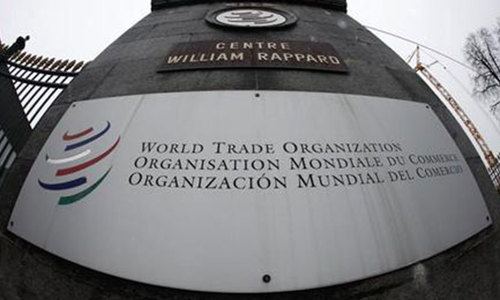ISLAMABAD: After much prodding into the matter, the government has finally initiated in-house consultations for proposals to reform the multilateral trade systems and making the Geneva-based World Trade Organisation (WTO) more relevant and adaptive to a changing world.
A senior official told Dawn that Pakistan’s permanent mission to WTO has proposed to the Commerce Division to conduct consultations with relevant stakeholders on the proposed measures to voice its views on possible changes in order to leverage Pakistan’s requirements.
The call for reforms within and outside WTO was initiated by the United States and supported by developed countries to primarily counter the policies of China, which they believe are hurting their interests.
“It is high time that we closely monitor these developments at the level of WTO,” the official said, adding it is likely that in the long run, the possible changes hurt the interests of other developing and least developed countries.
An official in the commerce ministry said the issue of WTO reforms was recently raised formally in the concluded meeting of the WTO Heads of Delegation on July 24. The initial response that came from Pakistan on possible changes is that Islamabad has cautioned that these reforms should be broad-based and address the concerns of developing countries.
Pakistan, according to the official, is not alone but several other developing countries also asserted that any reform should not tinker with the fundamental principles of multilateral trading system, and be aimed at addressing the needs of developing countries.
The areas and possible reforms that came under discussion are the regular work and transparency of WTO, rules-making including the approach to the development question and WTO dispute settlement system.
Two aspects of reforms are important from Pakistan’s perspective, according to the official source.
Firstly, since the efforts are mainly intended to target the policies of China, any measure introduced against the country - such as industrial subsidies, technology transfer mechanism and measures for state owned enterprises - is likely to affect other developing countries.
Secondly, the aim of reviewing the principle of special and differential treatment and development is relevant. However, creating new categories of development and dealing with those issues on a case by case basis will tinker with the fundamental principles of the WTO. “It can be a cause of concern for developing countries,” he said.
Another proposal is that developing countries, which currently have the flexibilities enshrined under each WTO agreement to deal with the obligations, may be called to seek the approval of developed nations before using the flexibility. “This will be problematic and less likely to be utilised,” the official continued.
The recent global developments on multilateral trade and growing tensions between countries on various WTO issues have led to calls for reforms. Among the WTO membership, the issue was brought up during the Paris mini-ministerial meeting in June, followed by the heads of delegation and general council meetings at the end of July.
Major developed countries have also discussed this issue along with some global think tanks with five areas identified for possible discussion in the proposed reforms.
A major one caters to the interests of US, EU and Japan regarding the introduction of discipline on industrial subsidies and other measures for state-owned enterprises. It is one area where these countries want to review the relevant agreements.
As part of transparency, it was put forward to penalise countries which did not notify their subsidies.
Moreover, it is now proposed to bring differentiations in the category of developing countries to deal with China’s ‘manipulation’ of the WTO rules.
The membership of the appellate body has long been blocked by the US which has paralysed the system of dispute settlement. Efforts are now being made to resolve the impasse by reforming the body in a way that allays the concerns of the US and also help the DSP to move forward efficiently in its function. The EU, US and China are likely to lead the discussion on this aspect.
Published in Dawn, September 23rd, 2018














































